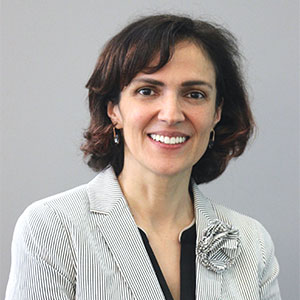
Sadan Kulturel-Konak
Sadan Kulturel-Konak
Professor of Management Information Systems at Pennsylvania State University
Sadan Kulturel-Konak is a professor of Management Information Systems and the director of the Flemming Creativity, Entrepreneurship and Economic Development (CEED) Center at Pennsylvania State University, Berks. Dr. Kulturel’s research focuses on modeling and optimizing complex systems using hybrid approaches combining heuristic methods and exact techniques from probability and operations research. The primary application areas of her research include designing and redesigning facilities to provide significant economic benefits for industries. Dr. Kulturel is also interested in pedagogical research regarding entrepreneurship/STEM fields, such as professional skill development and innovative thinking skills.
Track: Travel & Hospitality
Menu Engineering for Continuing Care Senior Living Facilities with Captive Dining Patrons
Continuing care facilities are a rapidly growing segment of senior living communities providing end-to-end solutions comprising independent living, assisted living, nursing home care, and ultimately hospice. All these establishments contain (in addition to other facilities associated with living, exercising, learning, activities, etc.) dining services managed by an interdisciplinary (finance, nutrition, dietitian, kitchen operations, hospitality, and procurement) team of executives, each with their own objective while cognizant of the overarching organizational, operational, and financial metrics. The residents of these facilities consume most of their meals at these dining facilities, necessitating that the food served meets the complete nutrition, dietary, cost, and operational requirements. Thus, the menu (often rotating every few weeks) of food items must be carefully chosen to be efficiently procured, processed, and served, all the while meeting the nutritional, dietary, and patron satisfaction constraints each put forth by the corresponding stakeholder. We address this complex, unwieldy, and large multi-objective optimization problem using mixed integer linear programming. We demonstrate how menu planners and chefs can analyze their decisions regarding menu structures and evaluate alternative menu interventions to improve menus’ nutritional value while ensuring their residents’ autonomy in making food choice decisions. Along the way, we interviewed various stakeholders, identified their objectives and constraints, gathered the necessary data, formulated and solved the resulting optimization problems, and produced demonstrably effective menus.

